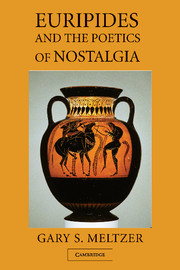The Hecuba transposes Theseus' question – how is the “just voice” to prevail against the voice of self-interest, sophistry, and deceit? – from a private domestic setting to a politicized, wartime context. In the years that intervened between the Hippolytus (428 b.c.) and the Hecuba (ca. 424 b.c.), this question acquired greater urgency for the Athenians, because of the atrocities that occurred early in the Peloponnesian War. Indeed, the Hecuba echoes concerns about the brutalizing effects of war that are also voiced in Thucydides' narrative. Both works portray the violation of civilized norms by the Greeks in war, their sophistic attempts to rationalize barbaric conduct, and the failure of any voice of justice, reason, or moderation to make its own case. Both the play and the history present us with a world that fails to respect any transcendent principle of justice, asking: upon what authority, moral or political, can humanity rely to preserve civilized norms, in the absence of a divine “word of truth” that is both heard and heeded?
Euripides' Hecuba poses this question with particular power and pathos. In the play, the character who expresses nostalgia for a transcendent “just voice” is not the powerful king of Athens but a powerless victim of Greek aggression, Hecuba, formerly queen of Troy, now Agamemnon's slave. On their way home after winning the Trojan War, the Greeks have stopped in Thrace, where Hecuba learns that her daughter, Polyxena, is to be sacrificed as an offering at Achilles' tomb.
